Blooms in chartreuse hues steal the show in any garden

1 Green Star gladiola
GLADIOLUS, ZONES 8 TO 11
This rising star is ideal for adding tiers of height to your garden. About 10 to 12 of the 3-inch florets along the stem open all at once during their July and August performances. Butterflies are also big fans. Grow Green Star near burgundy, purple or white blooms.
Why we love it: Reaching 4 feet tall, these pastel giants add drama to summer bouquets.
2 Envy zinnia
ZINNIA, ANNUAL
It’s not the color of these nearly 3-inch double and semidouble chartreuse blooms that invokes garden envy—it’s how easy zinnias are to grow. They grow quickly from seed, pop with color all summer long and they make lovely cut flowers. Plus their 2-foot height shades out weeds.
Why we love it: In addition to all the pros of zinnias, they happen to be hummingbird and butterfly magnets.
3 Little Lime hydrangea
HYDRANGEA PANICULATA, ZONES 4 TO 8
Little Lime is a dwarf version of the popular Limelight hydrangea, but it still puts on a big show. Growing between 3 and 5 feet, it makes an attractive border for smaller spaces. Sturdy stems mean this smaller specimen knows how to hold its head up high, refusing to be overshadowed.
Why we love it: Although gorgeous in pale green, it’s pretty in pink in the late summer, as it begins to blush when fall is in the air.
4 Green Gambler hellebore
HELLEBORUS, ZONES 4 TO 9
Diese Geschichte stammt aus der February/March 2019-Ausgabe von Birds & Blooms.
Starten Sie Ihre 7-tägige kostenlose Testversion von Magzter GOLD, um auf Tausende kuratierte Premium-Storys sowie über 8.000 Zeitschriften und Zeitungen zuzugreifen.
Bereits Abonnent ? Anmelden
Diese Geschichte stammt aus der February/March 2019-Ausgabe von Birds & Blooms.
Starten Sie Ihre 7-tägige kostenlose Testversion von Magzter GOLD, um auf Tausende kuratierte Premium-Storys sowie über 8.000 Zeitschriften und Zeitungen zuzugreifen.
Bereits Abonnent? Anmelden
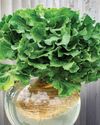
Basics of Hydroponics
Use these top tips and plant picks to have a successful soil-free garden
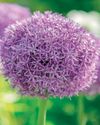
Rooted in Resilience
These hardy perennials will thrive in most zones
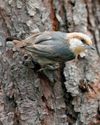
Social and Supportive
Brown-headed nuthatches take a helpful approach to raising their young

All About Owl Pellets
And why you should give a hoot about them

Ask the Experts
Advice from our pros about houseplants, bird feeding and more
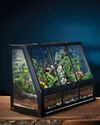
BRING THE OUTDOORS IN
Making a terrarium is about as close as you can get to a Zen DIY project. Once you have gathered the proper materials and squared away your plant selections, it's as simple as layering it all together and watching your mini ecosystem thrive. Here, I'll walk you through my foolproof process and cover all the required elements for good filtration, healthy soil, strong root growth and resistance against fungus and disease.

GROW THIS. NOT THAT
Six easy-to-grow houseplants—and six that may not be the right choice for you

Winter MAGIC
Forecasts may be frigid, but grab your binoculars because birding opportunities are still incredible
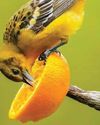
Sense or Nonsense? - Why some birds can taste and smell - but others can't
Does a porcelain berry taste like a blueberry to a gray catbird? Does a block of lard smell like frying bacon to a northern flicker? The short answer is no. While some avian species do have a well-adapted sense of taste or smell, they can't distinguish between flavors and odors the way humans can. They're not picking up every ingredient in the suet you put out, says José Ramírez-Garofalo, an ornithology researcher at Rutgers University in New Jersey and the director of Freshkills Biological Station in Staten Island, New York.

Maple Mania - Amazing facts about this fall foliage mainstay
Amazing facts about this fall foliage mainstay